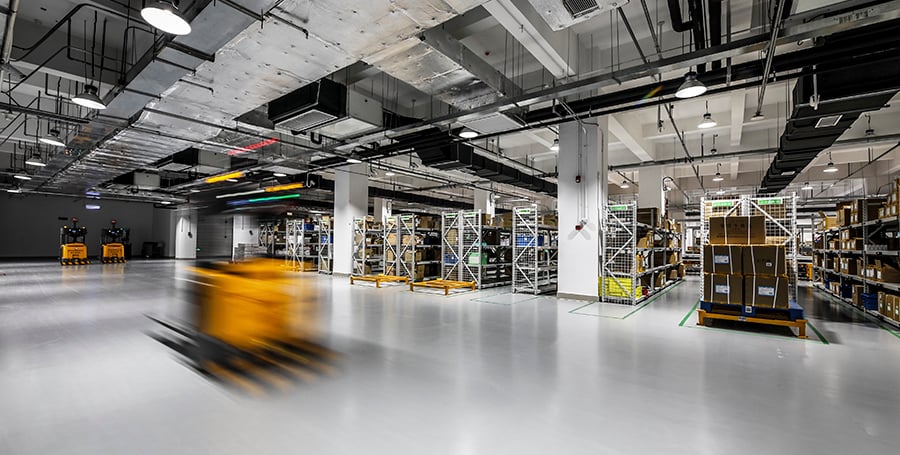International supply chains are becoming more complex and far reaching than ever before. As businesses of all industries and sizes fight to meet the demands of the world with quality, speed and cost efficiency, we have seen a relentless growth in the global trade of material and goods over the past few decades.
With businesses increasingly depending on overseas suppliers, improving the resilience of their international supply chains needs to be a key focus to ensure their long-term sustainability and growth.
Some of the most notable benefits of trading overseas is that there is a vast amount of possible suppliers to choose from as well as the potential of unit prices being lower, increasing ROI. Other benefits include:
· Availability of raw materials
· Market diversification
· Access to specialized knowledge and developments
· International growth
Protect your business by knowing your supplier
When looking to minimise risk, searching for the best suppliers can be a difficult task especially if you don’t know where to begin. This makes it even more important, especially with overseas business, to carry out due diligence checks. With the information included in our international credit profiles, we make this an easier process for you.

What key information should you know before getting in touch?
There are numerous outsourcing risks that could be related to the supplier, including its location, their financial stability, risk management practises and the integrity of the business and people running it.
Particularly for overseas sourcing, economic and political stability in the country in which they operate is important information to be aware of. Political unrest and international disputes can lead to difficulties and delays, whilst some regions could have economic sanctions set against them preventing you from legally trading with businesses within it.
Sanctions can also be applied to businesses and individuals themselves because of financial misconduct, such as bribery and money laundering, as well as established links to terrorist organisations. Conducting thorough background checks become essential when trading with organisations abroad to safeguard your business from both fraudulent activities as well as reputational damage.
Once you have established that it is legally okay to work with a company, its financial stability is of next importance. Choosing a supplier who is struggling with cash flow and resources could leave your business unable to fulfil its own obligations in the long run. You will want to know all of this before moving forward with any deals and contractual commitments.
What is the culture like in the country you are looking to trade with?
The culture of a country will inherently influence the way in which the people who live there think, communicate and behave. This may impact the way you communicate with your supplier, as there could be a difference in cultural norms and beliefs. Be mindful of this to avoid potentially offending any business partners or making assumptions based on your own cultural norms. Language barriers can have an influence on the detail of information given to you, so doing some secondary research such as looking at business reports can provide better access to key information initially.
Are they the right supplier for you?
When part of your businesses operations are based in overseas locations this will automatically limit the amount of oversite that there is from the main location. Not having complete control over day-to-day activities whilst needing to trust your suppliers will be difficult if the right supplier were not chosen in the beginning. Associating your business with another allows them a degree of influence over your reputation. Knowing how a supplier treats their staff is important as you want to avoid being affiliated with a business who is going against labour laws or crossing ethical lines. Ensuring that your supplier provides safe working conditions for their workers and does not practice child labour is essential.
Diversify your supply chain
Primary and secondary suppliers
Supplier risk is a huge concern when outsourcing as your supplier holds a vital position within your supply chain. If your supplier is, for whatever reason, unable to deliver the materials or goods this will disrupt the entire chain. Placing all of this responsibility onto one supplier without having secondary suppliers in place to continue the process would result in bringing many operations to a standstill.
Not only can supply chain disruption lead to revenue losses, but it can also upset your customers and give your competitors a chance to gain a strong foothold. Diversifying risk with multiple suppliers is a key solution to this. Working with multiple suppliers and managing these relationships allows you to ensure that if one falls you have others that are able to fill your demand.
Having options when it comes to who your suppliers are and where they are located diversifies your risk and helps you prepare for when the unexpected happens.

External factors affecting supply chains
External factors influence business activities all the time. However, some of these are harder than others to prepare for. Keeping up to date on local current affairs, understanding a regions natural challenges and having contingency plans in place will help you deal more effectively with these challenges should they arise.
A recent event which has shook supply chains worldwide is the outbreak of the Coronavirus. The virus first started generating news in mid-December with its impact on supply chains around the world increasing as time went on. Many supply chains have been delayed or halted completely due to restrictions on travel in and around China, with the lockdowns of major cities and exports being postponed due to quarantines.
In some cases, even very large companies have had to close stores, delay production times and delay releases because of the impact of Coronavirus. With many factory shutdowns in China, businesses are unable to continue operations as usual. Although this is an extreme case, which we do not know the full impact of yet, such disruption can often be minimised by employing secondary suppliers in different locations.
Other external factors affecting supply chains include the aftermath of natural disasters. These disasters can have long-lasting effects dependant on the severity of them, meaning areas which have been hit can either recover rather quickly in comparison to some still feeling the ripples of the event years later.
The UK has experienced the wettest February on record which has caused disruptions across supply chains. With business operations slowing down in areas which were hit the hardest by the storms many businesses have had delays in receiving goods and replenishing stock as travelling became more dangerous and roads inaccessible. Although the UK government has put in place schemes and grants to help SME businesses with the costs of the damage, this will not speed up the recovery time in supply chains. If businesses didn’t place importance on having secondary suppliers, it is often too late once a disruptive event has happened.
Mitigate risk with supply chain resilience
As supply chains evolve and grow in complexity many companies aren’t fully aware of everyone in their network beyond the first tier. The lack of knowledge in this area might only come to light when an issue arises, by which time the damage may have already been done.
Enhance your ability to handle unexpected events that may threaten the functionality of your supply chain by mapping our your supply chain and identifying potential weaknesses. This will help you to diversity in the right areas and increase your supply chain resilience. With help from our international business profiles and monitoring service, we help you better assess your business partners and keep an eye on any changes in their circumstances.